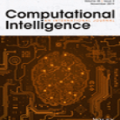As the relative power, performance, and area (PPA) impact of embedded memories continues to grow, proper parameterization of each of the thousands of memories on a chip is essential. When the parameters of all memories of a product are optimized together as part of a single system, better trade-offs may be achieved than if the same memories were optimized in isolation. However, challenges such as a sparse solution space, conflicting objectives, and computationally expensive PPA estimation impede the application of common optimization heuristics. We show how the memory system optimization problem can be solved through computational intelligence. We apply a Pareto-based Differential Evolution to ensure unbiased optimization of multiple PPA objectives. To ensure efficient exploration of a sparse solution space, we repair individuals to yield feasible parameterizations. PPA is estimated efficiently in large batches by pre-trained regression neural networks. Our framework enables the system optimization of thousands of memories while keeping a small resource footprint. Evaluating our method on a tractable system, we find that our method finds diverse solutions which exhibit less than 0.5% distance from known global optima.
翻译:随着嵌入记忆的相对能量、性能和面积(PPA)影响继续增长,对芯片上数千个记忆中的每一个都进行适当参数化至关重要。当一个单一系统的一部分将产品的所有记忆参数优化在一起,可以实现更好的权衡,而如果同一记忆在孤立状态中得到优化的话。然而,由于解决方案空间稀少、目标相冲突、以及计算成本昂贵的PPPA估计等挑战,共同优化超常现象的应用受到阻碍。我们展示了如何通过计算智能解决记忆系统优化问题。我们采用了基于Pareto的“差异进化”法,以确保对多个PPPA目标进行不偏袒的优化。为了确保高效地探索稀有的解决方案空间,我们修复个人以产生可行的参数化。通过预先训练的回归神经网络,对PPPA进行了大批量的高效估算。我们的框架使得系统对数千个记忆进行优化,同时保留少量的资源足迹。我们在一个可移动的系统中评估我们的方法,我们发现我们的方法会找到不同的解决方案,这些解决方案显示距离已知的全球选择度不到0.5 % 。




